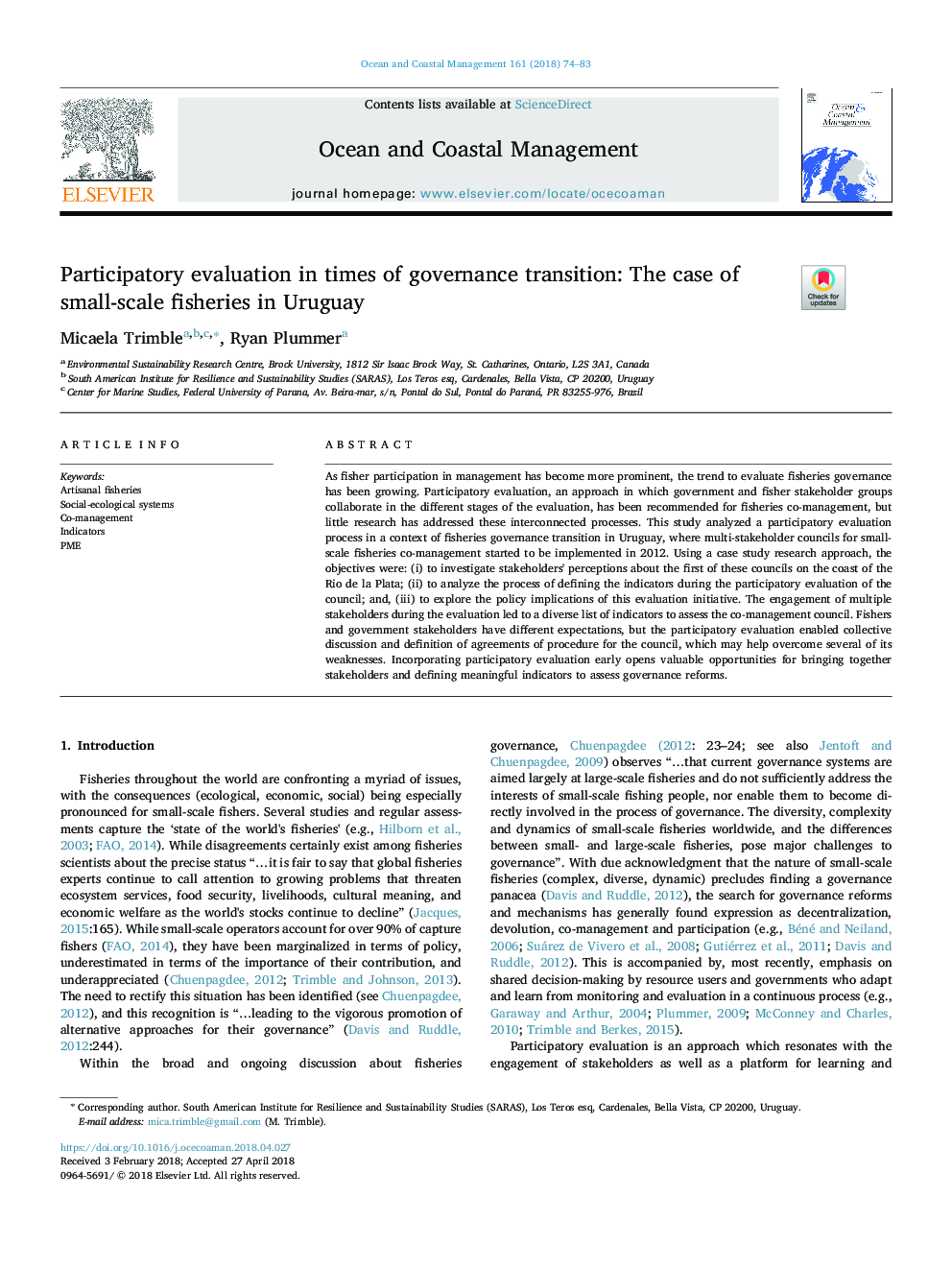| Article ID | Journal | Published Year | Pages | File Type |
|---|---|---|---|---|
| 8060612 | Ocean & Coastal Management | 2018 | 10 Pages |
Abstract
As fisher participation in management has become more prominent, the trend to evaluate fisheries governance has been growing. Participatory evaluation, an approach in which government and fisher stakeholder groups collaborate in the different stages of the evaluation, has been recommended for fisheries co-management, but little research has addressed these interconnected processes. This study analyzed a participatory evaluation process in a context of fisheries governance transition in Uruguay, where multi-stakeholder councils for small-scale fisheries co-management started to be implemented in 2012. Using a case study research approach, the objectives were: (i) to investigate stakeholders' perceptions about the first of these councils on the coast of the Rio de la Plata; (ii) to analyze the process of defining the indicators during the participatory evaluation of the council; and, (iii) to explore the policy implications of this evaluation initiative. The engagement of multiple stakeholders during the evaluation led to a diverse list of indicators to assess the co-management council. Fishers and government stakeholders have different expectations, but the participatory evaluation enabled collective discussion and definition of agreements of procedure for the council, which may help overcome several of its weaknesses. Incorporating participatory evaluation early opens valuable opportunities for bringing together stakeholders and defining meaningful indicators to assess governance reforms.
Related Topics
Physical Sciences and Engineering
Earth and Planetary Sciences
Oceanography
Authors
Micaela Trimble, Ryan Plummer,
